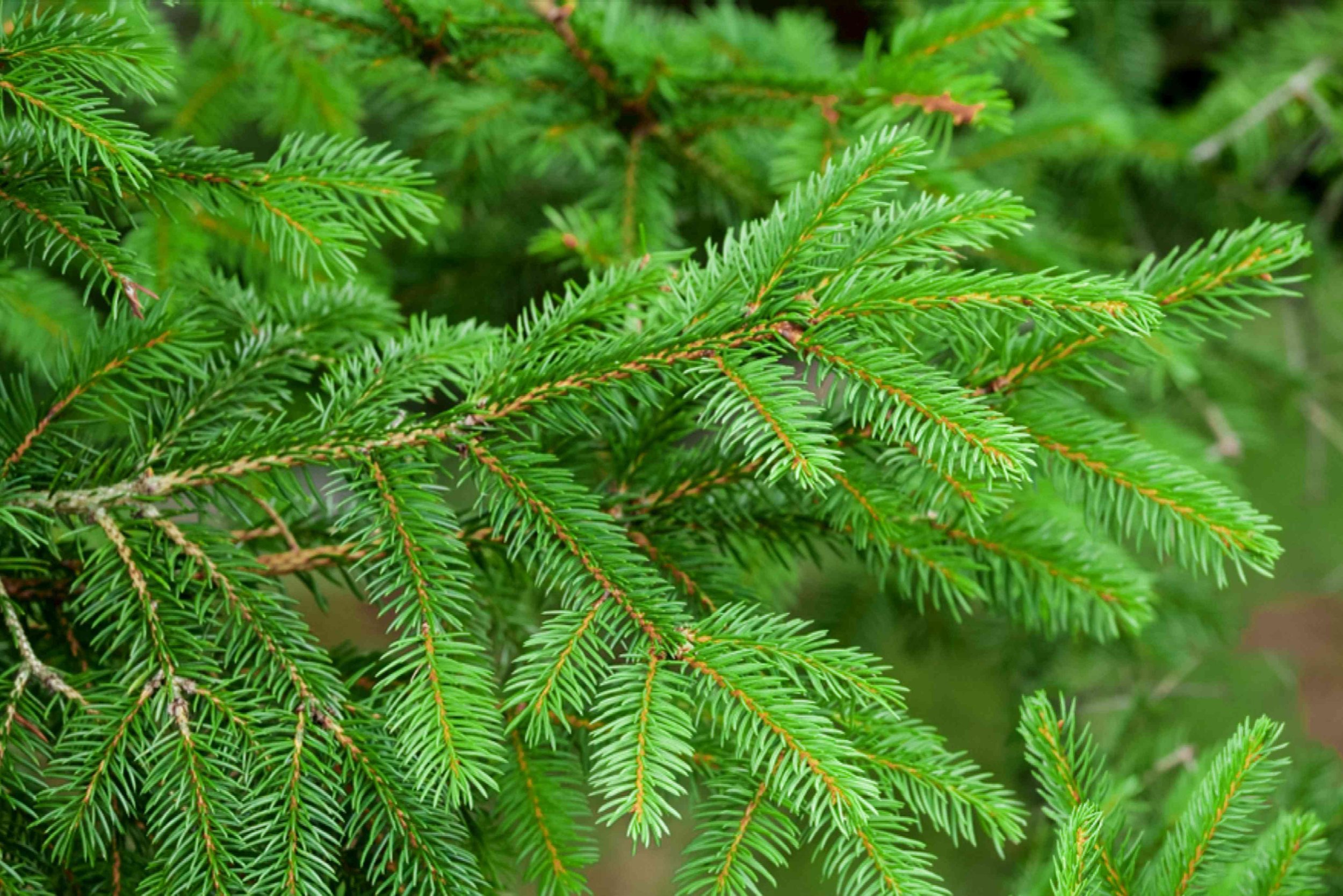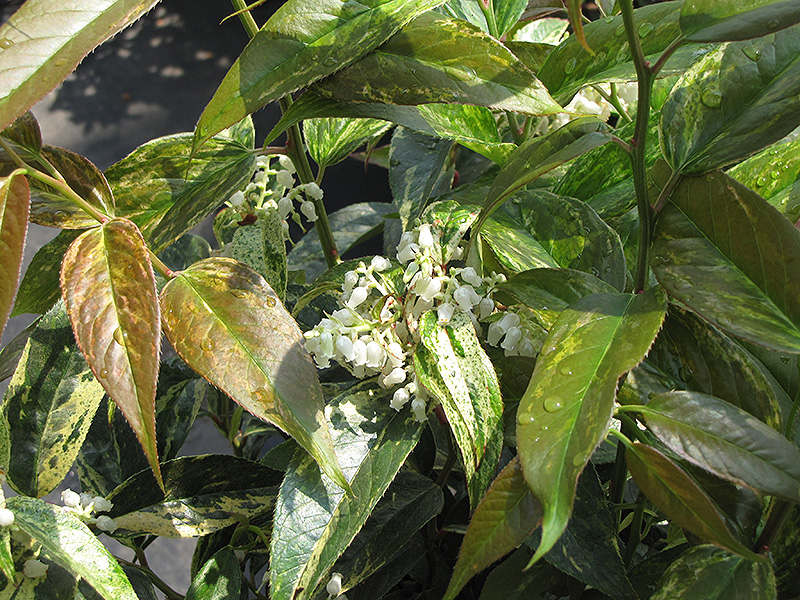
Girard's Rainbow Fetterbush
Leucothoe fontanesiana 'Girard's Rainbow'
Height: 5 feet
Spread: 5 feet
Sunlight:
![]()
![]()
Hardiness Zone: 5b
Other Names: Mountain Doghobble, Dog Hobble
Description:
A striking hybrid variety with multicolored new foliage that becomes dark green and cream; this lovely colonizing shrub blooms prolificly in spring with long racemes of white bell flowers; makes a handsome tall groundcover
Ornamental Features
Girard's Rainbow Fetterbush features showy racemes of fragrant white bell-shaped flowers hanging below the branches from late spring to early summer. It has attractive creamy white-variegated dark green foliage with hints of pink which emerges coppery-bronze in spring. The glossy pointy leaves are highly ornamental and remain dark green throughout the winter. The pink branches add an interesting dimension to the landscape.
Landscape Attributes
Girard's Rainbow Fetterbush is a multi-stemmed evergreen shrub with a shapely form and gracefully arching branches. Its average texture blends into the landscape, but can be balanced by one or two finer or coarser trees or shrubs for an effective composition.
This is a high maintenance shrub that will require regular care and upkeep, and is best pruned in late winter once the threat of extreme cold has passed. Gardeners should be aware of the following characteristic(s) that may warrant special consideration;
- Suckering
Girard's Rainbow Fetterbush is recommended for the following landscape applications;
- General Garden Use
- Groundcover
- Naturalizing And Woodland Gardens
Planting & Growing
Girard's Rainbow Fetterbush will grow to be about 5 feet tall at maturity, with a spread of 5 feet. It has a low canopy, and is suitable for planting under power lines. It grows at a medium rate, and under ideal conditions can be expected to live for 40 years or more.
This shrub does best in partial shade to shade. It does best in average to evenly moist conditions, but will not tolerate standing water. It is not particular as to soil type, but has a definite preference for acidic soils. It is somewhat tolerant of urban pollution. This is a selection of a native North American species.

